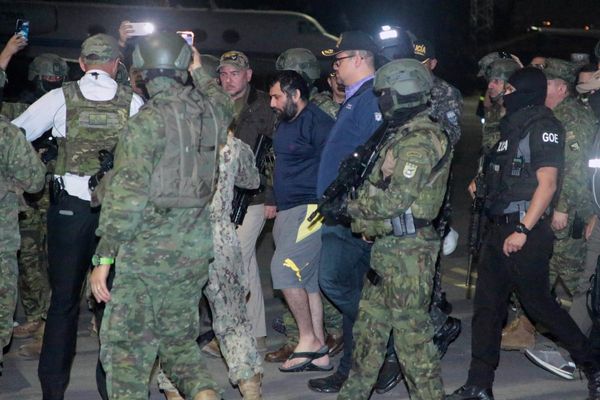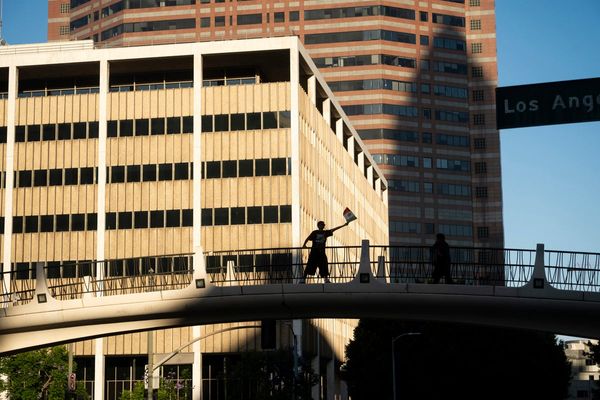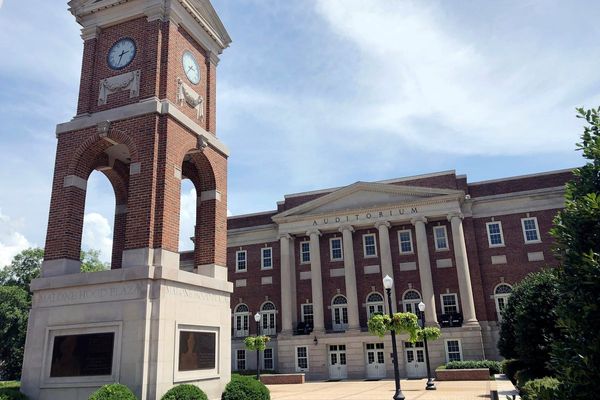
PALM BEACH, Fla. _ Even as he serves as president, Donald Trump earns a tidy sum of money _ tens to hundreds of thousands of dollars _ every time a new member joins one of his tony clubs.
He's benefited greatly from these so-called initiation fees for years _ and even back when the fees took the form of refundable deposits he broke with the norm for such clubs to take the money for himself, according to documents and interviews.
In 2004, Trump had access to nearly $100 million from refundable fees from members at just four clubs, including Mar-a-Lago, a resort in Palm Beach that Trump has dubbed the Winter White House, according to a personal financial statement written by his accountant that year and obtained by McClatchy.
This story, based on nearly 20 interviews and hundreds of pages of documents, some from lawsuits involving Trump and his businesses, shows that Trump is still earning money from one-time club fees; he put in place unusual policies that allowed him to keep the high one-time fees charged to new members, which originally were intended to be refundable; and put language in his contracts that allowed him to spend the money on anything he wanted.
The little-used practice of pocketing the initiation fees provides more clues about the type of businessman Trump was before he entered politics.
"It's definitely unusual," said Jay Karen, CEO of the National Golf Course Owners Association, who has been in the golf club business for two decades. "It certainly reflects a clever and shrewd way to raise capital."
Trump's decision to maintain profits of his businesses while president, including his nearly 20 clubs across the globe, has been sharply criticized by ethics experts who cite a litany of potential problems: Are members and their guests gaining unfair access to the president? Is the president violating the Constitution by accepting money from foreign officials? Do local and state leaders feel pressure to make decisions that could favor Trump's businesses? Will the president's proposals on taxes, environmental rules and labor regulations benefit his clubs?
"I don't think we have anything to compare this to in presidential history," said John Wonderlich, executive director for the Sunlight Foundation, a government watchdog group. "He is refusing to acknowledge that the office is bigger than his business."
In the five months he has been in office, Trump has visited Mar-a-Lago on 25 days and his golf clubs on 35 days, sometimes more than once a day, according to a compilation of information released by the White House.
The visits have led to a flurry of publicity that could boost the clubs' popularity and revenue, experts say, fueling questions that he is using the presidency to make more money, especially as his Bedminster, N.J., golf club gets ready to host the U.S. Women's Open Golf Championship starting Monday.
Mar-a-Lago saw profits climb nearly 25 percent in 2016 while he was a presidential candidate, though overall income at his golf clubs declined 6 percent, according to Trump's personal financial disclosure statement released last month. Immediately following his election, Mar-a-Lago doubled its initiation fee to $200,000.
"Just about all publicity is good," said Laurence Hirsh, president of Golf Property Analysts and a former president of the Society of Golf Appraisers. "As he continues to visit his clubs, he raises their profile and potentially enhances their business."
The White House referred questions to the Trump Organization, the business now run by Trump's sons, which did not respond to questions. But in an interview after a Mar-a-Lago member quietly arranged for a pair of former Colombian presidents to meet Trump, White House chief of staff Reince Priebus told NBC News that Americans didn't need to know about the clubs, including the identity of its members. "I mean this is a private business. It's a private organization. It's a private club," he said.
There's no doubt that Trump's clubs are among the biggest moneymakers in his vast empire. He listed more than $325 million in income from golf clubs and resorts, according to his recent disclosure statement. Trump National Doral, a golf resort in Miami, was his largest source of revenue with $116 million in income.
Before he was sworn into office, Trump eschewed calls to fully separate himself from his business interests and instead placed his holdings in a trust.
An attorney who specializes in financial matters, including taxes, for affluent families who examined Trump's available trust documents at the request of McClatchy said Trump amended an existing trust this year to name as trustees his son, Donald Jr., and Allen Weisselberg, the Trump Organization's chief financial officer.
The attorney, who did not want to speak publicly about the president's finances, said Trump retains the legal power to revoke the trust. The trust, which was to include all of Trump's businesses, is designed to hold assets for his "exclusive benefit," which he can receive at any time without the public's knowledge, the attorney said.
White House press secretary Sean Spicer acknowledged in April that Trump could receive the money while president. "The whole entire point of setting it up is so that somebody can draw money," Spicer said. "The idea that the president is withdrawing money at some point is exactly the purpose of why a trust is set up, regardless of an individual."
Trump pledged to donate profits from spending by foreign governments at his hotels to the U.S. Treasury (though the Trump Organization has recently said that it won't ask guests if they are members of ore representing other government because it would "diminish the guest experience.") But even that policy does not apply to Trump's clubs.
Trump's name adorns 18 exclusive clubs around the globe, including Scotland and Ireland; three of them are in Florida. Trump National Golf Club in the suburbs of the nation's capital hosted the Senior P.G.A. Championship in late May. In February, his adult sons who are charged with running the family business while Trump is president attended a ceremony to open a golf club in Dubai. A second course is set to open in Dubai in 2018. Officials at the clubs declined to comment for this story.
Members of Trump clubs are required to pay initiation fees _ a one-time charge for joining, which is common at clubs _ as well as thousands of dollars in annual dues; dues vary, but amounted to $25,000 at one club and $14,000 at another club. None of the fees are returned.
"No portion of an Initiation Fee will be refundable in connection with a member's resignation," according to a 2014 membership plan for Trump National Golf Course Colts Neck obtained by McClatchy.
In the past, initiation fees were refunded when a club member left _ as long as he or she had been there at least 30 years. But the money wasn't sent back until a new member joined, essentially ensuring that the same amount of money was always available to Trump. No interest was given to the members, who also had to pay additional fee to receive the refund, which the Bedminster rules put at 15 percent in 2010.
The practice of requiring a new member to replace an existing member had been the norm for high-end clubs. But Trump's terms of 30 years was less common. Most clubs allowed a deposit to be returned in just a couple years if four to five new members signed up, Karen said.
Henry DeLozier, a principal in Global Golf Advisors, which works with investment bankers, real estate developers and golf owners, said refundable deposits became popular in the late 1980s and early 1990s. "It was a means ... to gain access to capital with a 30-year payback," he said. "It was a 30-year interest free loan."
After the recession _ when more members wanted to resign from clubs than wanted to join them _ owners began to forgo refundable deposits for initiation fees that were to never be returned.
In February, a federal judge ordered the Trump National Jupiter Golf Club to give back nearly $6 million to members who accused Trump of keeping their refundable deposits, promised under a prior owner, and refusing to allow them to have access to the club after they said they planned to resign.
In 2004, Trump's accountant at Weiser LLP certified public accounts wrote a personal financial statement used in a lawsuit that outlined the refundable deposits he had control of from four clubs. Mar-a-Lago: $26.2 million; Trump National in Briarcliff Manor: $20.1 million, Trump International in Palm Beach: $31.6 million; and Trump National in Bedminster: $22.2 million. Trump has since acquired additional clubs.
"One condition of membership is the contribution of non-interest bearing deposits that do not require repayments until thirty years after receipt and then only upon a members resignation," the statement said. "The fact that Mr. Trump will have the use of these funds for that period without cost and that the source of repayment will most likely be a replacement membership has led him to value this liability at zero."
Philip Newman, a CPA who has spent more than two decades working with private clubs, agrees that the deposits are equity and not a liability. "It's not that the club has to replace the money, but the replacement member does," he said.
Scott Univer, general counsel at Mazars USA LLP, which acquired Weiser, declined to comment, saying it was against both company policy and professional rules.
The majority of clubs in the United States are nonprofits, where members have equity in the facility and any fees are spent on improvements. Those clubs and even others run like businesses generally earmark fees to capital costs, such as improvements to the club house or restaurant, or say they will be spent on the club, according to leaders at four professional associations of clubs in the United States, including the National Club Association and Club Managers Association of America, which have thousands of members.
Newman said initiation fees are typically used for a club's facilities but "certainly there are developers who put the money in their pocket."
Two Trump club membership contracts obtained by McClatchy show the refundable deposits could be spent however the owner wants. "Membership deposits and all other Club revenues are the property of the Club Owner and may be used for any purpose, in its sole discretion," according to Trump International Golf Club in Palm Beach rules in 1999 and addendum in 2000 obtained by McClatchy. Rules of Trump National Golf Club in Bedminster in 2010 use the same language, word for word.
Thomas Hutchison, a businessman who became a member of both Mar-a-Lago and Trump National Golf Club in Jupiter, Fla. in 2015, alongside his wife, Deanne, said he is sure that Trump spent their initiation fee however he wanted. "That's how he makes his money," he said. "If you don't like the way he's maintaining it, you quit."
The Hutchisons are members of five other clubs around the country; three of them in Florida and Maryland, are owned by the members. The other two, both in Idaho, allow the owners to use fees for anything just like Trump's.
Thomas Hutchison described the situation this way: If you rented your house you wouldn't expect all the money to be spent on the house's upkeep. "If I owned a golf club I'd do the same thing," he said.
Two other Mar-a-Lago members who did not want to speak publicly about the president's businesses said they were aware that Trump could spend the money how he pleased; one said he signed the club's contract a decade ago _ after his attorney reviewed the document _ knowing he would never get his money back. None of the members could produce the club rules because they didn't know where they had put them, if they even kept them.
"I don't know what they do with the money. I don't care," said Michael Kovner, a Manhattan residential real estate broker and new Mar-a-Lago member. "It's theirs."
The amount of the current initiation fees are kept secret from the public, though some have been reported in news reports: Trump National Golf Club Westchester in Briarcliff Manor, New York, charges $200,000. Trump National Golf Club in Bedminster, N.J. charges $350,000. And Trump International Golf Club in West Palm Beach, Fla. charges $450,000.
In 1999, Trump International Golf Club in Palm Beach capped membership at 375. In 2010, Trump National Golf Club, Bedminster's ceiling was 700. In 2014, Trump National Golf Course Colts Neck, limited membership to 375. All figures are taken from club documents.
Each club's financial paperwork, including loan or tax documents, could pose some limits on how the money could be spent but Trump has not released them.
Trump is the first president in decades to refuse to release his taxes, which would show what he is making from his clubs. "We need to see president's tax returns to see what he is profiting from," said Aaron Scherb, director of legislative affairs of the government watchdog group Common Cause.







